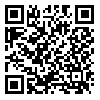
International Journal of Industrial Engineering & Production Research
Iran University of Science & Technology
Sun, Dec 14, 2025
[Archive]
Volume 30, Issue 3 (IJIEPR 2019)
IJIEPR 2019, 30(3): 329-340 |
Back to browse issues page
Download citation:
BibTeX | RIS | EndNote | Medlars | ProCite | Reference Manager | RefWorks
Send citation to:



BibTeX | RIS | EndNote | Medlars | ProCite | Reference Manager | RefWorks
Send citation to:
Mousavipour S, Farughi H, Ahmadizar F. A Job Shop Scheduling Problem with Sequence-Dependent Setup Times Considering Position-Based Learning Effects and Availability Constraints. IJIEPR 2019; 30 (3) :329-340
URL: http://ijiepr.iust.ac.ir/article-1-847-en.html
URL: http://ijiepr.iust.ac.ir/article-1-847-en.html
1- phD candidate, Department of Industrial Engineering, University of Kurdistan, Sanandaj, Iran
2- Assistant professor, Department of Industrial Engineering, University of Kurdistan, Sanadaj, Iran ,h.farughi@uok.ac.ir
3- Associate professor, Department of Industrial Engineering, University of Kurdistan, Sanadaj, Iran
2- Assistant professor, Department of Industrial Engineering, University of Kurdistan, Sanadaj, Iran ,
3- Associate professor, Department of Industrial Engineering, University of Kurdistan, Sanadaj, Iran
Abstract: (5526 Views)
Sequence dependent set-up times scheduling problems (SDSTs), availability constraint and transportation times are interesting and important issues in production management, which are often addressed separately. In this paper, the SDSTs job shop scheduling problem with position-based learning effects, job-dependent transportation times and multiple preventive maintenance activities is studied. Due to learning effects, jobs processing times are not fixed during plan horizon and each machine has predetermined number of preventive maintenance activities. A novel mixed integer linear programming model is proposed to formulate the problem for minimizing Make Span. Owing to the high complexity of the problem; we applied Grey Wolf Optimizer (GWO) and Invasive Weed Optimizer (IWO) to find nearly optimal solutions for medium and large instances. Finally, the computational Results are provided for evaluating the performance and effectiveness of the proposed solution approaches.
Keywords: Sequence dependent set-up times, job shop scheduling, learning effects, Availability constraint, Transportation times
Type of Study: Research |
Subject:
Operations Research
Received: 2018/08/13 | Accepted: 2019/05/13 | Published: 2019/09/16
Received: 2018/08/13 | Accepted: 2019/05/13 | Published: 2019/09/16
Send email to the article author
| Rights and permissions | |
 | This work is licensed under a Creative Commons Attribution-NonCommercial 4.0 International License. |




